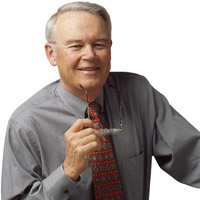The next-generation law firm is now. Some traditional law firms still struggle with change since this post was first published September 2012 – just five years ago. Follows is an interview with Pat Lamb of Valorem Law Group, which I’ve reprised because…well, maybe you missed it the first time around. Lots of good stuff here…read on.
Thanks to social media—a next-gen gathering place—I met Pat Lamb, one of the four founding members of Valorem Law Group, a five-year-old, [in 2012] next-generation law firm based in Chicago. After reaching out to Pat with a connection request on LinkedIn, we continued to advance our business relationship with occasional communications on Twitter. On my last trip to Chicago, I scheduled a time to meet face to face with Pat, curious to learn more about what makes his law firm “revolutionary.”
“We simply question everything,” he said.
Pat explained that first, they question everything. Then, they are “willing to change what needs to be changed in the best interest of the client, not the law firm.” (AM I DREAMING or did he just tell me that the client experience is everything?) Not a mirage. Over the course of our conversation, I learned that Valorem truly values the ideas and actions that make a difference in the client experience and relationship—and guess what, their clients do too!
If you doubt that the needs of law firm clients are in transition, and how in some cases it’s too late to turn around the ship, just reference the recent dissolution of BigLaw powerhouses such as Dewey LeBouf, Heller Ehrman, Coudert Brothers, and Howrey. They illustrate, IMHO, a type of arrogance that rendered them unable to question (and subsequently fix) outdated business models, inflexibility, archaic and unpredictable billing practices, crappy cultures, muddling client service, and etc. So they quit. Leaving in their wake a lot of unnecessary damage.
Disaster being non-exclusive, some smaller, regional firms, and boutiques have also quit trying: Los Angeles law firm Silver & Freedman, Warner Smith & Harris, a Fort Smith, Arkansas based firm founded in 1887, McDonough Holland & Allen, Darby & Darby, an intellectual property boutique that had a strong presence in New York and Seattle, and the list goes on.
Still others on the brink of disaster choose to take their dysfunctions elsewhere—the profession averaged about 15 (small firm) mergers and acquisitions in each of the last six quarters, according to Altman Weil. Do they question everything? No, under the banner of a new name many continue with business as usual—often picking up more baggage than they had expected.
There’s no shortage of agreement from the legal profession’s thought leaders that the traditional law firm model is in trouble and needs to come up with a better way of serving clients. Check out a few here, here, and here.
So, is the Valorem model the new normal for the next generation? Let’s look closer.
Six Fast Facts about Valorem Law Group.
- They have an OUTSIDE advisory board. (This may be one of their most revolutionary moves! No more navel-gazing. Tapping into multiple perspectives–how smart!)
- Valorem lawyers are all refugees of elite BigLaw firms.
- At the core, they are entrepreneurs, revolutionaries, and risk takers.
- Litigation matters are managed with business discipline.
- Cost pressures are real and how they bill is the client’s preference. They believe law firm clients are entitled to budget certainty and take measures to address those needs—at the onset.
- Fees are almost exclusively based on alternative fee arrangements–including value line adjustment performance billing options.
But, the Devil is always in the Details.
With Pat’s permission, I’ve compiled 10 topics, summarized from both recalled conversations as well as emailed ones, that explain the values of the next generation law firm.
1. The unconventional name.
VMO: How important was it for you to choose a non-conventional name for your law firm—Valorem Law Group? Does it make a difference? (Valorem means “value” in Latin.)
PL: I’ve seen firm names become ego things and a source of tension between those whose names are on the letterhead and those whose names are not. Using a name that is a statement of our prime value is good for our law firm culture—avoiding those tensions—and even better for branding. The normal law firm is like a grain of sand. It may be the best grain of sand ever; way better than all other grains of sand, but it is on a sandy beach. With so many grains of sand, no one will ever know just how great a grain of sand it is. The only way to succeed on a beach is to not be a grain of sand.
2. Risks and rewards of starting from scratch.
VMO: Entrepreneurial, revolutionary, alternative—words that you use to describe Valorem. Your elite brand of litigation representation is based on alternative fee arrangements—you have “skin in the game.” What are the risks and rewards of this bold approach to a centuries-old profession?
PL: Rewards first. The legal profession is changing rapidly and rather than riding in a back car on the train we are shaping our own future; building the road we want to travel. Trailblazing makes the journey an adventure; infinitely more interesting than simply hoping your established firm doesn’t fail or that you’ll be treated fairly by the powers-that-be.
The risks? We face many of those that any start-up faces. But, because we are trying to create a new model for an established profession we also face unique marketing and selling risks such as having to persuade some clients to try a different compensation system and changing the behavior of practicing lawyers—hourly billing has become part of many lawyers’ DNA and we needed to change those practices.
We are learning how to improve what we do and that takes courage. We designed our firm from the ground up—no red tape, budget certainty, diversity, collaboration, and the innovative use of technology and strategic outsourcing. These values were not determined in a vacuum, nor are we inflexible; we are constantly listening to our clients and making adjustments—a balancing act that carries risk, yet is rewarding on almost every level.
3. Inspiration.
VMO: Do the things that make great companies special hold lessons for the success of next-generation law firms? Where do you look for inspiration?
PL: Absolutely. More than anything, I believe that law firms should look to great businesses for inspiration, not other law firms. For example, Apple went from the verge of bankruptcy to having the largest market capitalization of any company. It did so with a relentless focus on the customer experience. Zappos, the online retailer—“We don’t sell shoes, we sell service”—went from nothing to a billion dollar company by offering a trans-formative client experience. I think law firms can learn huge amounts from studying these examples, and I hope Valorem is an example of a firm who has learned from them.
4. Unconventional culture and character.
VMO: Established law firms have years, sometimes a hundred plus years, of culture laden with hidden agendas, attorney dissatisfaction, archaic fee structures, and management issues that keep them struggling with 21st Century client needs. Is it possible to turn around the Titanic before it hits the iceberg?
PL: Economics are critical, but so too is the culture and character of the law firm. For us, making practical use of ideas is at the heart of the matter—ideas are openly encouraged and evaluated. We question everything: from relationships to case management, billing to technology, and communications to marketing and account administration. Innovation is found in facility design, flexible schedules, human resources, and compensation.
Perhaps most importantly, no idea is ignored. Everyone in the organization has a voice—including a mailroom attendant or law school intern. The divide between staff and partner is closed. Everyone has an opportunity to make his or her case and see an idea to fruition—to deliver what law firm clients really want, which is predictable, credible, exceptional legal and business counsel, relationship, quality, and value. It takes exceptional vision, but it’s not out of reach.
5. Exceptional client relationships.
VMO: The client is in the driver’s seat today. Price sensitivity, disruptive technology, and globalization are impacting client relationships. How are you addressing these challenges for the client and the law firm?
PL: Relationships between client and attorney should be something special. We are huge on client service and we talk with our clients about how we are doing and how to improve all the time. One way we do this is by trying to understand the pressures under which our clients operate and how we add to or ease those pressures depending on what we do. Sometimes it is the little things like what we put in the re line on emails. Other times it can be bigger issues. Everything we do for clients builds loyalty, and loyal clients are repeat clients, making it possible for Valorem to thrive. It’s a win-win formula. (Check out Pat’s blog “In Search of Perfect Client Service”)
6. Productive decision-making.
VMO: Consensus, committees, avoiding tough decisions, lack of action—this is the standard operating modus of many traditional law firms. Are those conventions a thing of the past? How does the next generation law firm make decisions?
PL: Different decisions require different kinds of decision-making. For example, I don’t really consult with others on what kind of insurance to buy. On the other hand, important strategy decisions in a case are precisely the kind of decisions you want to discuss. In these decisions, there is a chain of command—someone is in charge of the case and is accountable for the decisions made. But we try to focus on getting the right outcome and de-emphasize who provides the input. We want to get it right, and ego and fight for credit are things that get in the way of getting it right, so we really try to put those things aside. Now it’s not possible to do that completely, but we really do de-emphasize those things in favor of active and free exchange of ideas.
7. Professional satisfaction.
VMO: If I had a dollar for every lawyer I speak to who is (secretly) at some level dissatisfied with his or her situation at their law firm, I’d be a thousandaire. Is your job satisfying?
PL: My job is a combination of the work of a leader, strategist, marketer, financial overseer, promoter, as well as practicing trial lawyer. It is very satisfying.
8. Role models.
VMO: Do you have a role model?
PL: I do. I look to Steve Jobs for his relentless focus on the customer experience. I look to my Advisory Board members Jeff Carr (General Counsel of FMC Technologies) and Paul Lippe (CEO of Legal OnRamp) for their ability to strip away the falderal and see the future clearly.
9. Business development, marketing, and social media.
VMO: Word of mouth, referrals, positioning, and promotion—are all marketing tactics employed by traditional law firms. Are your time and money invested differently? Do you set expectations for attorney marketing? Is social media a factor in new business development?
PL: I am a big believer that people need to play to their strengths. Some people are not good marketers, so I don’t expect them to market. Those that like it and are good at it are expected to focus on it. We work together on themes and projects, like developing the website. But a lot of marketing is retail, grass roots, person-to-person marketing. People don’t hire small firms because of reputation. We get hired because people meet us somewhere and we develop a relationship with them. So, for example, I do several speeches a year for in-house audiences and work to develop relationships with people I meet at those events.
Most of us are pretty active LinkedIn users and a couple of us are on Twitter and Facebook. We have a couple of bloggers as well. We try to make sure everyone understands the concept of “Google juice”—when some potential client does a search about any one of us or any issue we care about, what do they find when the results come up? We look to make sure we appear where we want to when key searches occur. I can’t point to specific clients we’ve gotten only because of social media, but I do know that clients have come to us after validating us by looking at our social media content among other aspects of their due diligence.
10. Defining success.
VMO: Valorem states on their website that success is not self-defined. The judge that matters—the client—defines it. When something isn’t working, how do you address it?
PL: There is a story—true or not, I don’t know—that someone said Thomas Edison had failed thousands of times to invent the light bulb. When asked about his failures, he responded, “I have not failed 1,000 times. I have successfully discovered 1,000 ways to NOT make a light bulb.” That philosophy of success and failure is so applicable in start up companies as we strive to do new things.
Initially, we listened to what clients wanted and designed our firm accordingly from the ground up. We continue to ask our clients, regularly, how we are doing. The feedback is instructive; you are always learning that some things are not the best way and need to be tweaked. So change is perpetual, and hopefully improvement, too.
Open Questions.
Is this the new normal?
The traditional model may keep pace—making slight changes here and there—but can it compete with the new generation that embodies holistic change?
If this post has expanded your thinking on this topic or helped in any way, please drop a comment, like it on FB or Tweet it! Share the knowledge!




